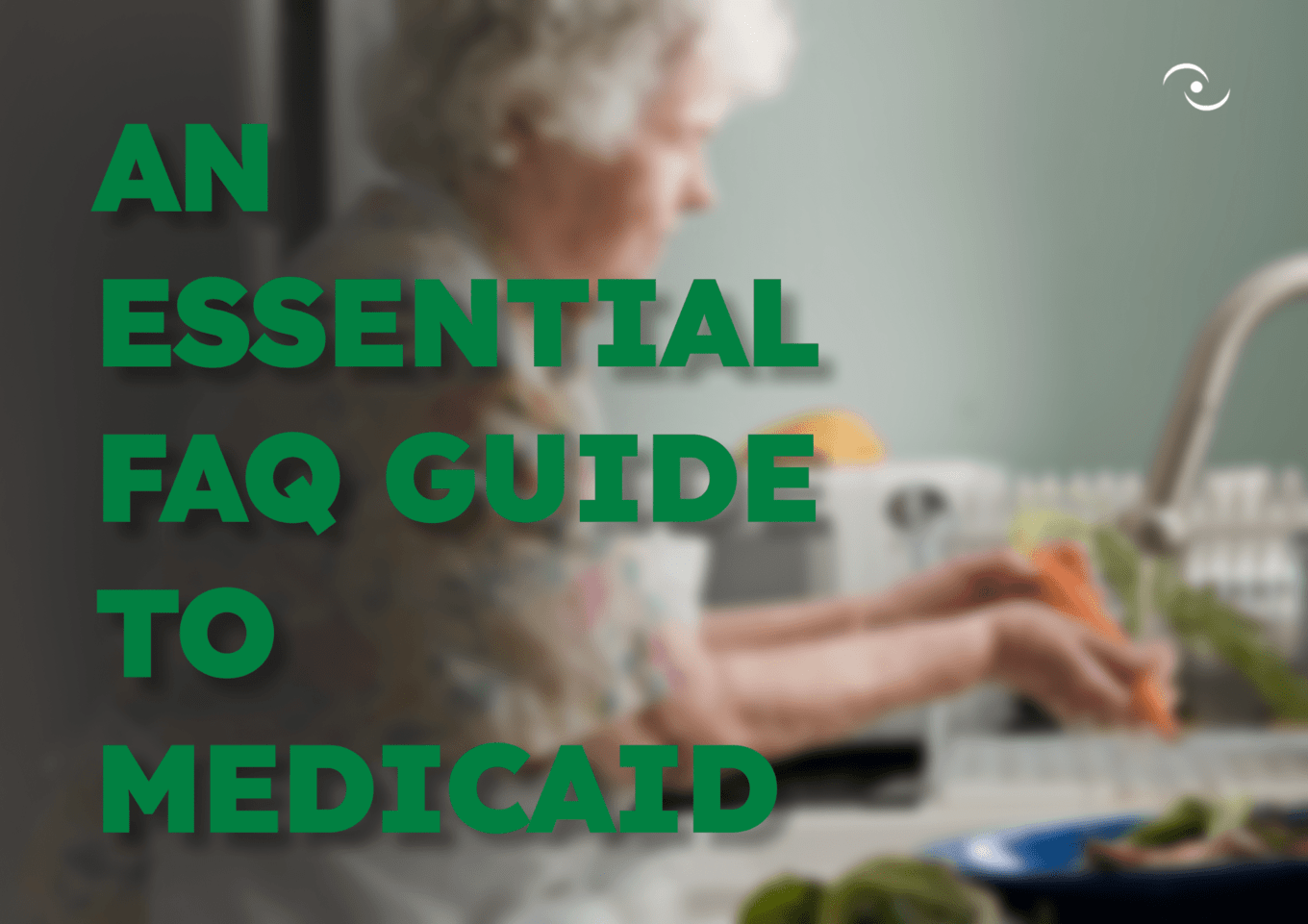

At Medilodge, we understand that navigating the intricacies of healthcare programs can be daunting, especially for seniors and their families. That’s why we’re committed to providing clarity and support to our residents as they explore the possibilities offered by Medicaid.
In this essential guide, we’ll delve into the frequently asked questions (FAQs) surrounding Medicaid, offering clear and concise answers to help our residents make informed decisions about their healthcare options. From eligibility criteria to covered services and everything in between, our goal is to empower our community with the knowledge they need to access the vital support provided by Medicaid. Whether you’re exploring options for yourself or a loved one, understanding Medicaid can be crucial in making informed decisions about nursing home care.
Medicaid is a joint federal and state program in the United States that provides healthcare coverage to millions of individuals and families with low income and limited resources. Established in 1965 alongside Medicare, Medicaid aims to ensure that vulnerable populations have access to essential healthcare services. Medicaid covers a wide range of medical services, including doctor visits, hospital stays, prescription medications, preventive care, mental health services, and long-term care. Eligibility criteria for Medicaid vary by state but generally include income level, household size, and specific categories of need. Medicaid is critical in promoting health equity and access to care for those who may otherwise struggle to afford necessary medical services.
Eligibility for Medicaid varies by state, but individuals and families with low income and limited resources are generally eligible to receive benefits. Specific eligibility criteria often include income level, household size, and certain categories of need such as pregnancy, disability, or age. Medicaid typically covers low-income adults, children, pregnant women, the elderly, and individuals with disabilities. Additionally, eligibility may extend to certain groups, such as those receiving Supplemental Security Income (SSI), foster care children, and individuals who require long-term care services. Medicaid expansion under the Affordable Care Act (ACA) has extended coverage to more low-income adults in participating states, increasing access to healthcare for millions of Americans. Eligibility determination is typically conducted through state Medicaid agencies, and individuals can apply through various channels, including online portals, in-person offices, or by mail. To determine eligibility in your state, visit Medicaid.gov or Healthcare.gov.
Applying for Medicaid varies by state, but individuals can begin the application process by visiting their state’s Medicaid website or the Health Insurance Marketplace. Online applications are often available and offer a convenient way to apply from the comfort of one’s home. Additionally, individuals can apply at their local Medicaid office or by contacting a certified enrollment counselor for assistance. When applying, it’s important to gather necessary documentation such as proof of income, residency, citizenship or immigration status, and any other relevant information. The application will require detailed information about household members, income sources, and expenses to determine eligibility for Medicaid coverage. After submitting the application, applicants will receive notification of their eligibility status and any next steps required to enroll in Medicaid benefits.
Medicaid provides a comprehensive range of healthcare services to eligible individuals, covering essential medical needs across various categories. These services typically include doctor visits, hospital stays, emergency care, preventive services such as vaccinations and screenings, and prescription medications. Additionally, Medicaid often covers mental health services, substance abuse treatment, and rehabilitation therapies to support individuals in their recovery journey. Depending on the state and individual needs, Medicaid may also cover dental care, vision care, and transportation to medical appointments. Long-term care services, including nursing home care and home health services, are also often covered for eligible individuals who require assistance with activities of daily living.
While Medicaid is designed to provide healthcare coverage to low-income individuals at little to no cost, there may be nominal costs associated with certain services for some beneficiaries. These costs, known as copayments, vary by state and are typically based on income level. However, Medicaid beneficiaries generally do not have to pay premiums for their coverage. Additionally, many essential healthcare services covered by Medicaid, such as preventive care, doctor visits, and hospital stays, are provided with no out-of-pocket costs to the individual. Overall, Medicaid strives to minimize financial barriers to accessing healthcare services for eligible individuals and families, ensuring that cost is not a barrier to receiving necessary medical care.
Medicaid and Medicare are both government-funded healthcare programs in the United States, but they serve different populations and cover different services. Medicare is primarily designed for individuals aged 65 and older, as well as certain younger individuals with disabilities or end-stage renal disease. It consists of several parts, including hospital insurance (Part A), medical insurance (Part B), and prescription drug coverage (Part D), with coverage provided through federal funding. In contrast, Medicaid is a joint federal and state program that provides healthcare coverage to low-income individuals and families and limited resources, regardless of age. Medicaid covers a broader range of services, including doctor visits, hospital stays, prescription medications, and long-term care services, and eligibility criteria vary by state. Medicaid also offers benefits not typically covered by Medicare, like nursing home care and personal care services. Additionally, Medicaid may provide coverage for low-income Medicare beneficiaries to help with premiums, copayments, and services not covered by Medicare. Overall, while both programs aim to ensure access to healthcare services, they target different populations and offer different types of coverage. Some people are eligible for both Medicare and Medicaid, known as “dual eligibility.” Individuals who qualify for both programs are often referred to as “dual-eligible beneficiaries.”
Yes, you can still apply for Medicaid even if you have other health insurance coverage. Medicaid eligibility is primarily based on income level and other factors such as household size and specific categories of need. Medicaid can sometimes work with other insurance to cover costs your primary insurance doesn’t cover. Having other health insurance coverage does not necessarily disqualify you from Medicaid eligibility, but it may affect the services available or your eligibility for certain benefits. When applying for Medicaid, it’s essential to disclose all sources of health coverage to ensure accurate determination of eligibility and to explore potential coordination of benefits between Medicaid and your existing insurance plan. Ultimately, Medicaid aims to provide healthcare coverage to individuals and families who may not have access to adequate insurance options, regardless of their current coverage status.
Medicaid is vital in providing healthcare coverage to millions of Americans, offering essential services to those who need it most. Understanding Medicaid and its implications is crucial for individuals and families seeking healthcare coverage, especially for those residing in nursing homes like Medilodge. By understanding the basics of Medicaid eligibility, coverage, and application process, you and your loved ones have the knowledge and resources to navigate this vital program confidently and access the healthcare services you need to stay healthy.
At MediLodge, we remain committed to supporting our residents and their families throughout their healthcare journey, ensuring they receive the care and assistance they need to thrive. We understand navigating Medicaid benefits while considering nursing home care can be challenging. If you or your loved one need personalized assistance or have more questions related to Medicaid or need assistance with the application process, please don’t hesitate to reach out to our knowledgeable staff, who is ready to guide you through the process and help secure the care you need. For detailed information about Medicaid services and eligibility, visit Medicaid.gov, or for application procedures, go to Healthcare.gov.
Provide your information below to contact us about creating comfort and care for you.